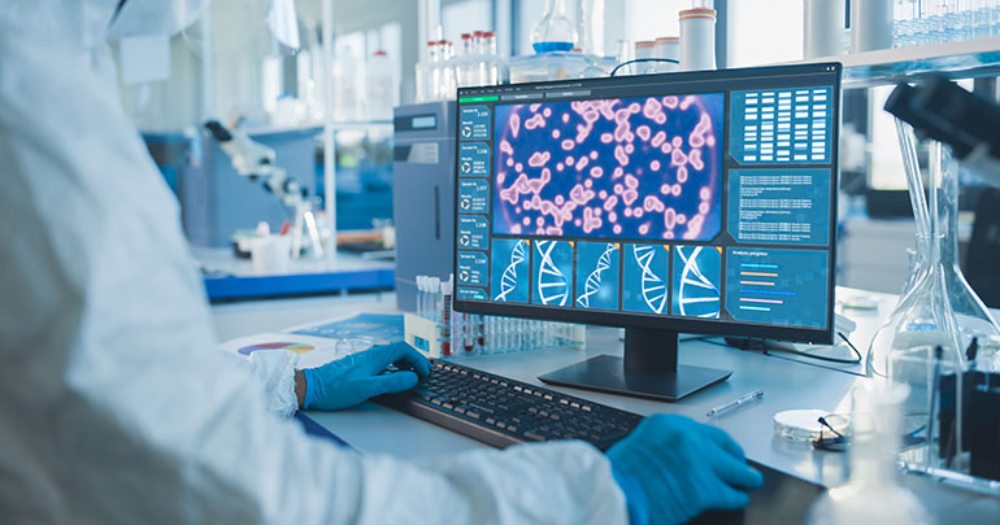Mount Sinai researchers use AI to predict genetic disease risk

When a genetic test reveals a rare mutation, the next question is usually the toughest: Does it actually mean anything? For patients, that uncertainty can feel like standing in a fog with no map. Researchers at the Icahn School of Medicine at Mount Sinai think they've found a way to lift some of that haze. By pairing artificial intelligence with routine tests such as cholesterol levels or kidney function tests, they've developed a new method to predict whether a genetic variant is likely to lead to disease.
As Dr. Ron Do, the study's senior author, put it: "We wanted to move beyond black-and-white answers that often leave patients and providers uncertain about what a genetic test result actually means."
How does it work?
Instead of drawing a hard line between "sick" and "healthy," the Mount Sinai team trained AI models to treat disease like a spectrum. They fed the system more than a million electronic health records and focused on 10 common conditions — think diabetes, cancer, and high blood pressure. Then they layered in routine lab data that most people already have on file.
The result? A scoring system between 0 and 1, where:
- A score near 1 means a variant is more likely to play a role in disease.
- A score near 0 suggests little or no risk.
Researchers calculated these "machine learning penetrance" scores for over 1,600 genetic variants. Some surprises popped up along the way. Variants once stamped "uncertain" suddenly showed strong signals, while others long thought to cause disease seemed harmless in practice.
As lead author Dr. Iain Forrest explained: "If a patient has a rare variant associated with Lynch syndrome, and it scores high, that could trigger earlier cancer screening. But if the risk appears low, jumping to conclusions or overtreatment might be avoided."
Why does it matter?
This approach could change the way genetic results are handled in clinics. Right now, many patients leave with more questions than answers. The new model doesn't replace a doctor's judgment, but it provides a guidepost when the data appears unclear.
- For patients: It may cut down on unnecessary worry — or unnecessary interventions.
- For doctors: It gives a clearer picture of who might benefit from early screenings or preventive care.
- For healthcare systems: It creates a scalable, data-driven way to make precision medicine more accessible.
As Dr. Do noted, "By using artificial intelligence and real-world lab data... we can now better estimate how likely disease will develop in an individual with a specific genetic variant."
The context
Genetic studies have traditionally relied on a blunt tool: a yes-or-no diagnosis. But real life doesn't work that way. Diseases often develop gradually, influenced by lifestyle, environment, and other genetic factors. That's why Mount Sinai's approach — mixing AI with everyday clinical data — feels like a turning point.
The researchers now plan to broaden the scope. More diseases, more genetic variants, and more diverse populations are on the horizon. They'll also track whether their predictions hold up over time — whether people flagged as high-risk truly go on to develop disease, and whether early action can tilt the odds in their favor.
Or as Dr. Do summed it up: "Ultimately, our study points to a potential future where AI and routine clinical data work hand in hand to provide more personalized, actionable insights for patients and families navigating genetic test results."
💡Did you know?
You can take your DHArab experience to the next level with our Premium Membership.👉 Click here to learn more
🛠️Featured tool
 Easy-Peasy
Easy-Peasy
An all-in-one AI tool offering the ability to build no-code AI Bots, create articles & social media posts, convert text into natural speech in 40+ languages, create and edit images, generate videos, and more.
👉 Click here to learn more


